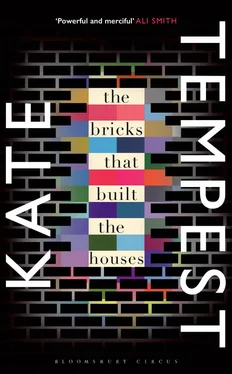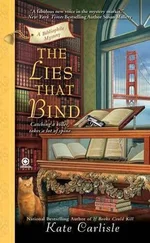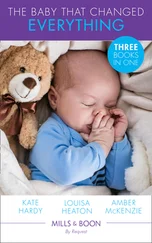The ground was even as the prisoners walked, each one thinking, or not thinking, staring at the back of the head of the man in front. They entered a forest. It was thick and the trees smelt fresh and clean after the stench of battle. The air became softer, light tangling in the leaves, trickling down through branches that clasped other branches like praying hands.
Louis studied the soldiers that passed him on his right and on his left. He noticed that they walked in step, and that each time they marched the length of the line, it took them exactly the same amount of time to reach the end, turn round and walk back.
When he was passed, he counted the seconds until he was passed again. The gap was exactly the same. He counted forty seconds between the soldier to his left and the soldier to his right passing him. And each one of those forty seconds stretched his skin a little tighter.
He thought of the dogs and their teeth, and he thought of the guns. He saw the blood and the smoke of the battles he’d been fighting for days on end. Then he thought of the other end of this marching line. When the destination was reached they’d find out who he was and he’d never get home alive. He would be killed. He thought of his mother, saw her face in his mind. He summoned the faces of his seven siblings. He whispered their names. He thought of his Joyce, the promise he’d made her. There was nothing else for it, he had to get home.
This was his chance.
Louis carried on counting, and each time, the delay between the two guards crossing seemed to be more pregnant, more weighted. He breathed deeply, waited for the guard on his right to pass him. He did. He counted ten seconds for the guard to get further down the line, glanced back to see the other guard, thirty seconds from him, and then time stopped. He jumped. He launched himself as hard as he could into the forest beside the path. Thick and green and giving after the sparsity of sea and sand and blood. He felt it take him and felt his breathing change. He began to run. And he could hear the gunshots, the barking dogs, the shouting men. He could feel the ground shake with heavy German boots but he ran with the forest not through it, ducked branches before he’d seen them, jumped dips before falling, and he kept on running, until eventually, his limbs in ribbons from thorns and brambles, his ankles twisted, his chest and throat thick with blood, he saw that it was dark, and quiet, and no one was chasing him any more.
He began his journey home. His mission was to head to Paris and then south towards Spain, for the Gibraltar Straits, where he knew he could get in a boat and sail back to Manchester.
He lived on what he could find, and the hospitality of the people in the houses he passed. Especially the children, who were usually kind to him and gave him as much food as they could sneak past their parents. He made it to Paris eventually. Living every day as Giuseppe. The way he figured it, with his complexion, he was safer an Italian on the run from Mussolini than a Jewish British soldier on the run from Hitler.
Despite the German occupation, Paris was good to him. He was given a room in a brothel where he rested for a while. He got work in a cabaret bar playing piano for the dancing girls and passed a happy few months thanking God for his life and recovering from the terrors of war. But home called him onwards, and he set out again.
Back in Manchester, the news had arrived of Louis Shogovitch’s brave death on the beaches. He had fought valiantly, and held his ground proudly. He was a hero who had died fighting for the safety of his nation. His family dropped their heads and shook with grief.
When Giuseppe arrived back home at last it was raining and his boots were full of holes.
He let himself in through the back door that was always open, but found nobody there. He looked around, openmouthed. Stuffing his face with the smells of his mother’s kitchen. He marvelled at the wallpaper, freckled with damp, pale at the edges, so familiar it sent a sweet dull pain straight through his middle. He pressed his hands against every surface. Tears in his eyes. He took off his boots and left them on the mat. Walked in his socks to the front room and sat himself down in his favourite chair, pushed his face deep into the cushions and fell asleep, the first happy sleep since he’d left.
When someone dies in a Jewish family the body is buried and then a year later the gravestone is set. When Giuseppe’s mother got home from the stone setting and found her son’s boots on the mat, she passed out cold.
He woke from his sleep with a start to the sound of his mother’s body falling to the kitchen floor. He wrenched his eyes open, expecting to see explosions, flesh, black smoke and screaming chaos, but instead he saw, to his unstoppable relief, that he was at home in his favourite chair. He sprang up and ran to the back door where he found his mother. He roused her gently, stared at her face with tears in his eyes, the first sight of land in a year lost at sea. He rocked her in his arms until she came round and saw her youngest son, back from the dead, speaking gentle words to her in the bright glow of their kitchen. Six months later he married Joyce and they stayed together for the rest of their lives.
After coming so close to death, he wanted to live a selfish life for as long as it felt like the right thing to do. Both he and Joyce worked hard. They saved money and travelled the world together. It wasn’t until very late in their marriage that they had their children. Joyce was thirty-five when her eldest boy Ron was born. He was followed in the next five years by Rags and then Paula. And although by this time Louis was very much Louis again, the spirit of Giuseppe would follow the family for ever.
When Ron took over the lease of the café he knew there was only one name for it.
Becky locks up. The high street is still busy, the market men are shouting their arias. The wind is bright and sharp. She can feel the presence of every member of her family crowding towards her, telling her to know herself and stop wasting her time.
She’d never seen her father’s book before. She’s sure her mum must have kept a copy somewhere, but she’d never seen one, not up close like that. Not for real. She walks down towards the station. Smiling ‘alrights’ at faces she’s spent a lifetime passing by.
That evening Becky is in the Hanging Basket, waiting for Gloria to finish her shift. Charlotte has a load of Year 9 essays out in front of her. She is meant to have marked them by now but she hasn’t looked at them for the last three hours. The pub is closed. Charlotte is smoking a spliff and playing solitaire with a pack of pornographic playing cards from the 1970s that live behind the bar.
Becky is drinking a gin and tonic. ‘This guy came in the café today,’ she says.
‘Was it this guy?’ Charlotte asks her, holding out the Jack of Hearts, showing two women with blonde perms and shiny red high heels fellating a man with a blond perm and shiny red cowboy boots.
‘Not quite that guy. But maybe one day he could become that guy.’
‘Maybe we all could, if we tried hard enough.’ Charlotte looks back at her game. Waits for Becky to keep talking but she doesn’t.
‘Anyway,’ Charlotte says. ‘This guy come in the café today.?’
Becky leans her head into her hand, feels the back of her skull. ‘No, that was it. That was all I was gonna say.’ She hangs her hair down in front of her face, combs it through her fingers, plays with the ends.
Charlotte watches the cards. Speaks flatly. ‘Great story. Tell it again.’
‘Shut up.’ Becky pushes her friend in the shoulder with a soft hand.
‘No, no, it was really interesting,’ Charlotte says, enthusiastically deadpan. ‘It was really interesting.’
Читать дальше












